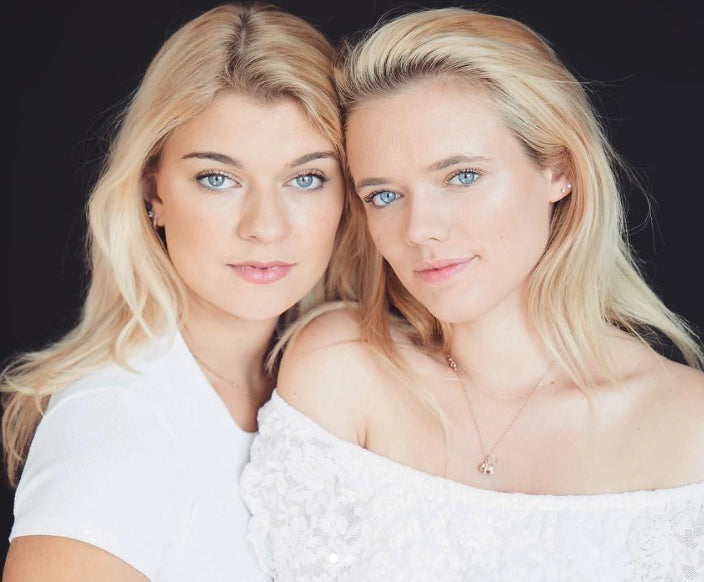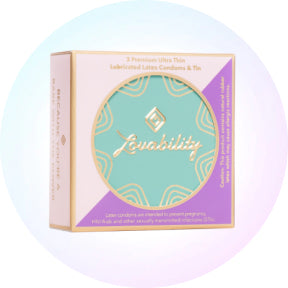Babe With The Power — Pink Tax

Power Babe Interview | with Amelia Baker & Mackenzie Munro of Blonde Mamba
All around us, Generation Z is awakening. Armed with a burning desire for change, voices speak from every corner of the world saying just about anything and everything there is to say. So, in this rapid-fire age of information, young creatives are asking, how do we make sure that we’re heard?
If we refine our global perspective to one of the most chaotic cities in the world, and further, to one of the most chaotic industries in the world, we’ll find two Gen Z creatives hellbent on sharing their message.
Amelia Baker and Mackenzie Munro, co-founders of the Los Angeles-based production company, Blonde Mamba Productions, are cool. They’re trendy. They’re strong. They’re perfectly Gen Z. And they’re undertaking powerful social projects like it’s their day job. Because it is.
The pair met at the world-renowned Cannes Film Festival as teenagers. Amelia was debuting her Stephen King short film, “All That You Love Will Be Carried Away”, and Mackenzie was showing a short film that she had written, directed and produced called “LOVE COINKY DINK”. Both films went on to garner numerous awards internationally, and – after following their own paths – the two would eventually become business partners.
With matching tattoos that christened their journey as friends, and while lovingly referring to one another as “wifey”, this dynamic duo sat down with us to share their story, the challenges they face as women in the film industry, and their projects to break stigmas and create meaningful change – most recently, taking on The Pink Tax.
How’d you two meet?
Amelia: Mackenzie and I both grew up on set. The first thing I produced was a short film by writer Stephen King. During the writing process, the director and I turned the protagonist from male to female, and we managed to cold call and win over an incredible actress named Lesley Sharp. That film, All That You Love Will Be Carried Away, ended up going to the Cannes Film Festival, which is where I met Mackenzie.
Mackenzie: Our parents had previously introduced us by email, so our first meet-up was essentially a business blind date! We absolutely hit it off. Within 24 hours, we had matching tattoos.
You’re tackling some big issues. Where's that motivation coming from?
Mackenzie: It’s a little bit of a story for me. So here goes.
Film school is an important first step in building a career in the film industry – as university is to most areas of study. Students are bright-eyed and bushy-tailed to take what they will learn in school and develop it into a successful and happy career.
So you’re entering film school because you want to be a writer, cinematographer, producer, director, sound, crew. What if you’re told you can’t do something because of your gender? That you can’t hold a three-pound camera because you’re a woman. That, if you want to explore the art of cinematography, where you need to operate a camera (hello?), you first have to sign a contract obligating you to pay for the camera if you break it. (Hunny, that’s 10k you wish you had). That there’s an even higher chance you’ll break it, because – in this particular project – there’s running involved. So now its “super high risk” to have a woman holding the camera while she’s running, right? And, oh, it doesn’t end there. The female professor doesn’t know how to handle the situation, so she does NOTHING and tells you to figure out how to achieve 50% of your overall mark with less than two weeks to go in some other way!
I reached out to the head of the department to discuss it, but never heard anything back. I was ignored. I was the problem.
Not cool. What kept you going?
Mackenzie: Luckily for me, I was raised by a boss lady filmmaker mom in the film industry, and I’ve been keen to pursue a career in film since the age of 8. She showed me to ignore. To continue. To kill them with kindness. And to bring the best damn running shoes you got. So I did, and that little film I made inside two weeks? It changed my life. I want to address a major problem here. Gender inequality is a problem for Hollywood, but – of course – it’s a significant problem everywhere. It happened to me and may still be happening at my university and others in Canada and the rest of the world.
So I’ve been growing a thick skin from the day I stood next to my mom on set. But what if I wasn’t? What if I was just eager to go into the industry I loved without having a clue about the way it works? If I experienced that situation, without having an idea of what was coming, I probably would have shriveled up and dropped out.
It must change. Not just at the top, but also at the beginning, especially in those first years — that first impression.
So you guys reconnected and decided to launch Blonde Mamba Productions in 2018. What’s the mission behind it?
Mackenzie: Our motto is “what doesn’t kill you gives you content” which is in parallel to our mission of going out and finding the story’s core truth. Everyone can sniff a lie — even in film and television. It’s time the voices that have been shushed are heard, and we are the ones who want to tell it.

Our motto is “what doesn’t kill you gives you content”
Do you have a different or unique approach to creating content? What’s the latest project?
Amelia: At Blonde Mamba, we don’t just believe in telling stories; rather, we build worlds with authentic perspectives and genuine voices. Not only does our slate revolve around issues of social impact, such as feminism, mental health and homelessness, but we strive to provide a powerful platform for young creatives.
Mackenzie: An example is Pink Tax, a show mixing Broad City and the Women’s March. Instead of making a traditional 2D show, we wanted to blend in community and action. So, we’re making an immersive room series around the issues women face, and ‘vignettes’ with different brands, to get the Pink Tax message out worldwide.
What got you into working on the Pink Tax issue?
Mackenzie: I was in the shaving aisle looking for the pink razor I usually go for. On my way there, a men’s vibrating razor caught my attention (probably because it was a vibrating razor; sounds fun, right?). And I picked it up to check it out a bit more, thinking to myself, I wish I had a beard to try this out on. Then when I went to grab the pink razor, I took a second look at the price and realized it was almost double the price of the vibrating razor. I couldn’t help but question: What? How? Who? So I thought, okay, I’ll buy the vibrating razor and try it out. To my surprise, I came out of the shower feeling like a smooth goddess that just awoke from some bad dream about the many pink razors that have constantly cut and irritated me, and even worse—the terrifying amount of money I’d wasted on all of them.

Why do you think we’re hearing more and more about the Pink Tax?
Amelia: This issue secretly affects all women on a daily basis! Spanning multiple industries, women lose about $1,350 to the Pink Tax annually.
How do you think your work with the Pink Tax has larger social implications?
Mackenzie: We hope to bring awareness to women across the globe that they’re being duped and robbed every day because of their gender. We want to get the proposed Equal Rights Amendment in the U.S. Constitution to completely eliminate the gender pay gap, in hopes of accomplishing a massive ripple effect to full-on gender and racial equality in our world.

What is your experience as a woman in your industry? What are some of the biggest challenges you face?
Mackenzie: As a woman in the film industry, and also as a daughter to woman in the industry, I’ve almost seen or heard it all. Amelia and myself have both been caught in plenty of #metoo situations, and continue to be extra cautious before going in any meeting room. It’s tough. But teaming up together was the best decision because anything we face, we face it together. Funny enough, even together, we face some of the strangest/most demeaning situations (from men and women, by the way).
Do you see change happening in the industry?
Mackenzie: Definitely, more so in the way people are consuming content. In terms of diversity in the industry, it’s definitely shifting. Except, there’s still a large gap. And people are stuck trying to just “tick boxes,” which is very wrong and against the purpose.
Amelia: I actually just saw ‘HoneyBoy’ last night – which is about Shia LaBeof’s relationship with his dad. The film is directed by a woman, Alma Har’el AND the cinematographer is also a female, Natasha Braier… a double whammy – which is SO awesome to see right now.
What does power mean to you? What does being a “Babe with the Power” mean to you?
Amelia: Power is an incredible force. Though sometimes polarizing, power can also unite, excite and inspire. A wonderful myriad of things, power includes opening someone’s mind, implementing change or simply staying true to yourself in the chaotic wild that is Los Angeles.
Mackenzie: Being a Babe with the Power means loving one’s self, supporting others [especially women, go us!], and striving to create an explosive and inclusive space for collaboration, cultivation and expression.
For more information on Amelia and Mackenzie’s projects, check out Blonde Mamba Productions. To learn more about its campaign against the Pink Tax, you can follow on Instagram and visit their website to join the movement.
Where have you seen the Pink Tax pop up in your own life? Let us know in the comments below.









